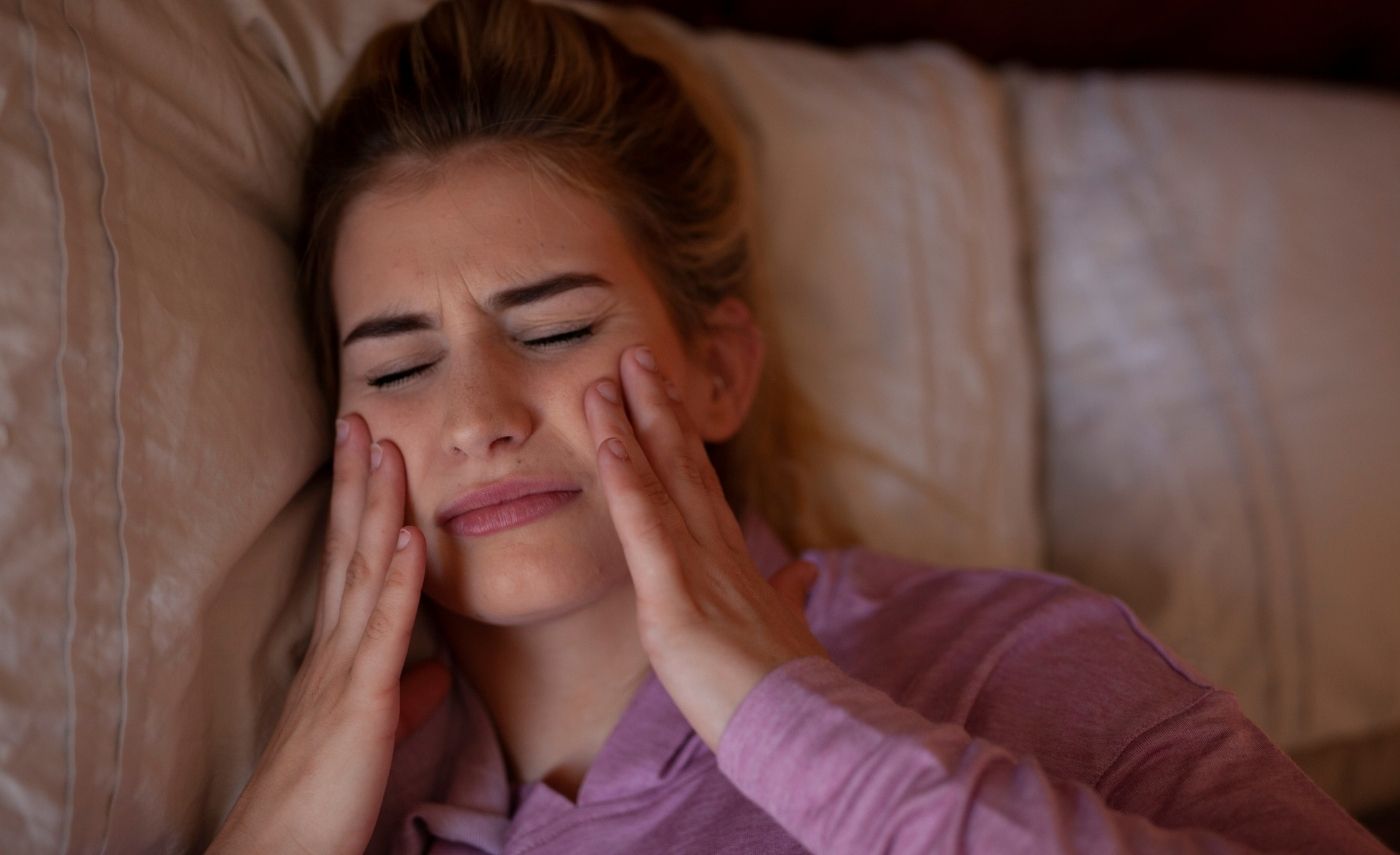Do you hear a popping or clicking sound when you open and close your mouth? This would be due to a slight misalignment where the jaw is connected to your skull, which you can feel move if you put your fingers on that area right in front of the lower part of your ears and open your mouth. In some cases, you may even have trouble doing this at all or closing it once open, as if the joint seems almost locked. This connection is known as the temporomandibular joint or TMJ and problems with its proper functioning are known as TMJ Disorder.
Other symptoms of TMJD can be swelling on that side of the face, pain behind the eyes, soreness in the neck and shoulders, unexplained headaches, hard-to-locate toothaches, or numbness in the ends of your fingers.
TMJD can be caused by a trauma to the head, dental emergencies, stress in your life that causes your jaw to tense, excessive chewing of gum, arthritis, fibromyalgia, crooked teeth that cause a misaligned bite, or unconsciously grinding your teeth at night. Some 15% of all American adults suffer from TMJD, but 90% of cases are among women 18-44, often due to calcium and magnesium deficiency, use of oral contraceptives, or hormone replacement therapy.

Fortunately, Dr. Cluff and her team are specialists in relieving TMJD. We can check for signs of teeth grinding, since patients often don’t realize they do this, repair the damage, and provide a customized night guard, like a sports mouthguard to wear while sleeping. If teeth need to be straightened for a better bite, we will recommend what needs to be done, such as Invisalign orthodontic trays.
In many cases, the joint can be restored to its correct positioning by wearing a personalized orthotic oral appliance we will create.
If the TMJ is due to recurring stress, we can show you neuromuscular exercises to relax your jaw or refer you to a counselor to address the underlying issues. Some cases may require referral for treatment by a chiropractor or physical therapist who specializes in TMJD cases or a medical doctor to review contraception or hormone treatment. You may also be advised to take anti-inflammatory medication or nutritional supplements. Meantime, you should eat primarily easy-to-chew foods and put ice on the side of the face where you have pain.
Call Dr. Cluff’s office today to set an appointment for an examination to determine if you have TMJD and the appropriate treatment options.
